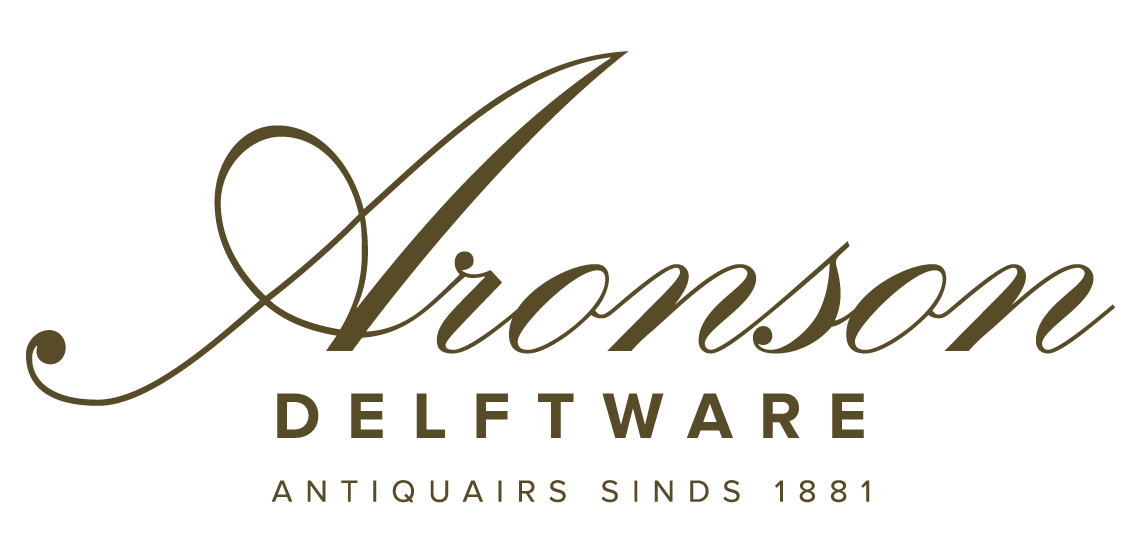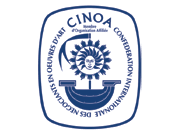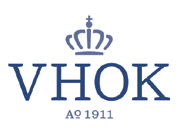
Blue and White Dragon Pattern Jar
Every month we present a special object from the Aronson Antiquairs’ collection. This month we would like to show you this blue and white covered ovoid jar painted boldly around the body with four scaly dragons. The jar bears the unidentified IW mark, which is probably for probably for Theodorus (called Dirck) Witsenburgh, the owner of De Witte Ster (The White Star) factory from 1690 until his death in 1700, and then used presumably by his family as owners until 1705.
Auspicious, mythical and intriguing, the dragon was a creature that found its way onto Delftware from the Chinese porcelain and other decorative arts imported by the Dutch East India Company (VOC) in the seventeenth century.
In Chinese art, the dragon is often depicted clutching or chasing after a pearl, which is emblematic of the beast’s supernatural powers. The dragon is revered as a divine creature that symbolizes good fortune, far from the terrifying and evil creature it came to represent in the West, where, through Europe’s own legends, it was the dragon-slayer who was the symbol of might, supremacy and heroism. Although the mythical dragon is a rare motif on Delftware, there are several Delftware objects with a rather similar depiction to the dragon. However, Delft potters and especially the ceramic painters imitated motifs from Chinese porcelain without understanding their symbolism.
The blue and white ovoid jar and cover is painted with four scaly dragons against a ground of entangled flowering vines continuing onto the cover. The jar was made around 1700 in the city of Delft, and is marked with the letters IW. This mark is probably for Theodorus (Dirck) Witsenburgh, the owner of De Witte Ster (The White Star) factory from 1690 until his death in 1700, and then presumably used by his family as owners until 1705. This particular dragon pattern was taken from a Kangxi Period (1662-1722) Chinese porcelain, and was sufficiently popular to have been adapted on a number of different forms. On each of these objects, the dragon’s body is outlined by a trek, a darker outline pigment, which is filled in with a blue wash.
Blue and White ‘Dragon’ Pattern Ovoid Jar and Cover
Delft, circa 1710
Unidentified IW mark in blue, probably for Theodorus (called Dirck) Witsenburgh, the owner of De Witte Ster (The White Star) factory from 1690 until his death in 1700, and then used presumably by his family as owners until 1705
Painted boldly around the body with four scaly dragons against a ground of entangled flowering vines continuing onto the cover, its slightly domed top with a single dragon amidst the vines.
Height: 32.6 cm. (12.8 in.)
Price: € 7.800 (appr. GBP£ 7,000 or export US$ 8’500) [See in webshop]



